Last Updated on November 30, 2022
In our previous article, we went over what an engine misfire is and the common symptoms of an engine misfire. So how do you determine what is causing the engine to misfire in the first place?
The combustion engine is relatively complicated as it has a lot of parts that need to work in the correct order and at the right time for everything to function. Broken, stuck, worn, or dirty parts can all lead to issues. Some defects can cause all of the cylinders to misfire and some only cause one to misfire.
Causes of an engine misfire can be hard to find since there are so many engine components involved. Here are the most common causes to help you troubleshoot.
Related Trouble Codes: P0300, P0301, P0302, P0303, P0304, P0305, P0306, P0307, P0308
Top 4 Cylinder Misfire Causes
#1 – Problems with the Ignition System
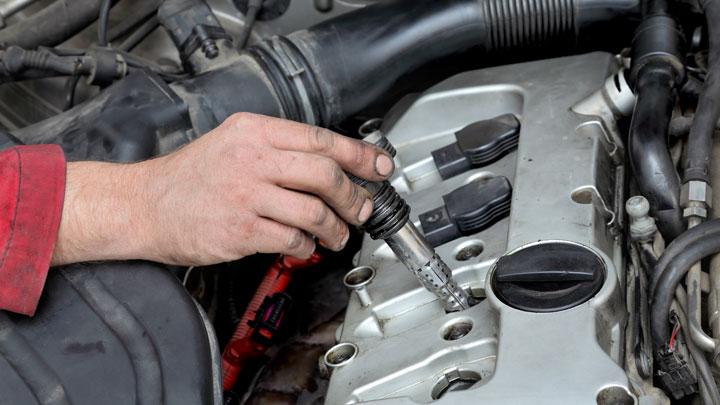
Worn spark plugs or spark plugs with an incorrect gap are a common issue, because the tip is delicate and spark plugs have a relatively short lifespan. If the spark plug gap is too big, the spark may not always be able to jump the gap between the center and side electrodes. No spark means no power on that stroke.
Ignition coils (and distributors) convert the relatively low voltage of the battery into the high voltage needed by the spark plugs. These components may wear out eventually due to the heat generated each time they fire. If the insulation on the ignition coil is worn, all that electricity may wander down a different path, instead of going into the spark plug or wire as intended.
Distributors are spinning mechanical parts found on older cars, and as such are subject to wear. Sometimes carbon, debris, or water finds its way under the distributor cap, hindering the distributor’s ability to transfer spark to the plug wires. Water in the distributor cap can make it difficult or even impossible to start the vehicle.
If the ignition is overly advanced or retarded, the spark will fire at the wrong time and could cause incomplete combustion and a rough running engine. Check that your distributor is adjusted properly using a timing light.
Some older electronically fuel injected (EFI) engines also have a sensor that can be adjusted in this manner (such as the cam angle sensor on older Mazda MX-5 Miatas). Refer to a repair manual for vehicle specific instructions.
Spark plug wires are a common failure point, as they wear out even faster than ignition coils. A worn spark plug wire may fire intermittently, weakly, or not at all. These can be tested using a timing light or a multimeter with an inductive pickup.
The pickup is placed around the spark plug wire and the device gives a reading each time the wire fires. If the timing light never illuminates or the multimeter shows low or no voltage, you know you have a problem.
Don’t discount the obvious, though. Make sure the spark plug wires are firmly attached to the ignition coils and the spark plugs. You may want to remove and inspect each wire to look for corrosion. Corrosion can place a gap between the coils, wires, and spark plugs, causing the engine to miss on that stroke.
Related: P0300 Code, P0301 Code, P0306 Code, P0351 Code
#2 – Problems with the Fuel

A tank of “bad gas” (incorrect octane or old gasoline) can cause a misfire. Weak or dirty fuel injectors can restrict the flow of fuel into the cylinder leading to the wrong air/fuel ratio. A clogged fuel filter leads to low fuel pressure which can also limit fuel flow.
Related: Symptoms of Water in Your Gas Tank
#3 – Electrical Problems
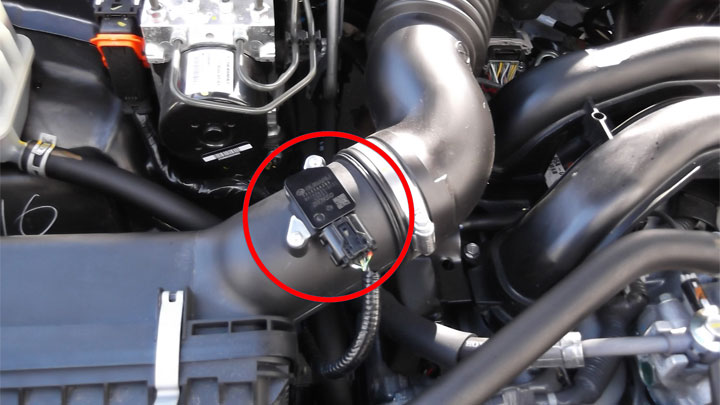
Sometimes the problem is due to electrical issues outside of the ignition system, such as a failing mass airflow sensor. Other computer or wiring problems can block the signals for the amount of fuel to inject, timing of fuel injection and spark, etc.
Spark plug wires generate quite a lot of electromagnetic frequencies (which is actually how inductive pickups work). The electromagnetic frequencies from the plug wires can sometimes cause electrical noise that interferes with other signals emitted from nearby sensors or the ECU, though it is not a common issue on stock vehicles.
See Also: P0102 Code
#4 – Mechanical Problems
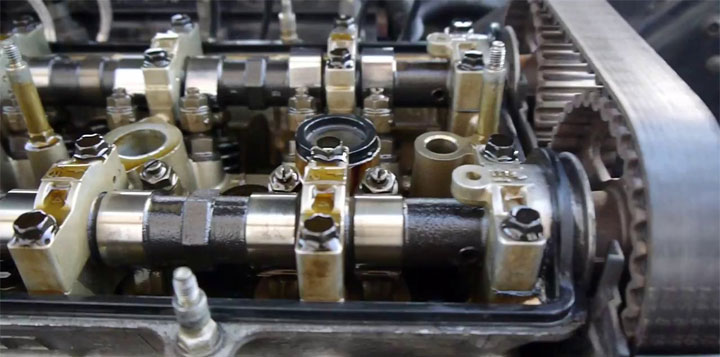
Since there are a lot of moving parts in the system, the engine should be checked for mechanical issues as well. Cracks can cause a vacuum leak, the timing belt or chain can slip and affect the timing of the valves opening and closing.
Moving parts such as the piston, rod, and crank bearing can break, and parts such as valve seals, valve springs, gaskets, and cylinder heads can wear out. Even a spark plug blow out could be responsible.
Valve problems are a common culprit. Carbon buildup around the valve seats of the cylinders can prevent them from closing all the way. A failing EGR valve could stick which puts exhaust gases back into the intake manifold or allows the air/fuel mixture to escape before being ignited.

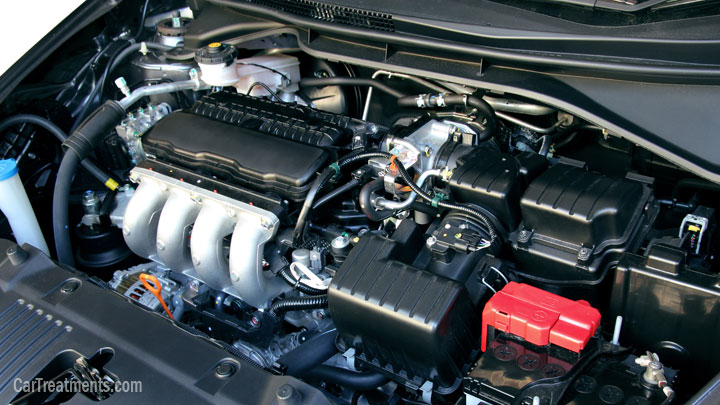
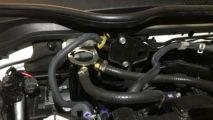
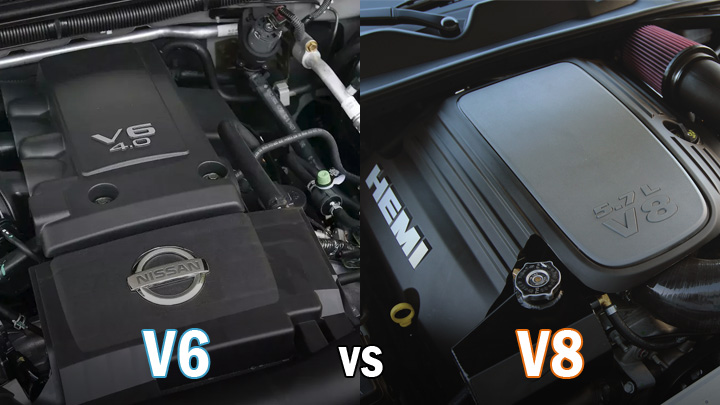
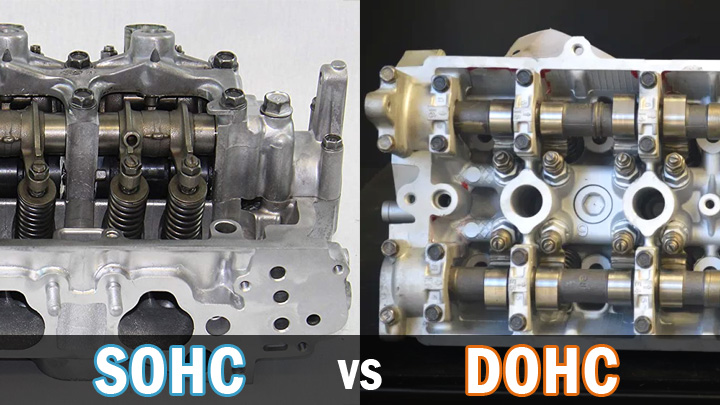
Hello my dear my Caris2006 model vitz compacts authomatic I have a problem sometimes I strat difficulties and after strat automatically I push the gear engine immediate engine off please can tell the problem and solution thanks for helping me
Hi guys, my name is Paul. Please I need any help I could get right now. As I speak now I am broke because I have spent all my savings trying to fix my car Toyota matrix 2005 for more than two weeks now without any success.
Before now my car had no issues. I only went to change the engine seating and the injector was serviced in the process. On my way home the car suddenly stopped raising as I presdown the throttle. I have to park. After few minutes kilometers it happened again. The nest day I took it to another mechanic who checked and said everything in in order. On my way going it happened again. He now referred me to electrician who now changed the plugs again and serviced injector for send time in two days. The problem persisted. He serviced the fuel pump and housing the issue still remain. He decided to replace the fuel pump with brand new one yet the problem persisted.
I had to take the car to scan , scan showed error p0240 which has to do with exhaust and catalyst .Then the exhaust was brought down and nothing was found wrong with the exhaust. Another scan showed error p0606 which has to to with power system and also brain box. The power system was checked and brainbox replaced yet the problem persisted
Please is there any one with such experience or has any form of solution this problem please
I would go back to what was changed in the very beginning, the “engine seating” and the injectors. See if anything in this area was touched in the process that may have caused it to malfunction.
The original mechanic should be able to give you a detailed list of everything that was done. These issues seem to be unrelated, so it could be an electrical issue like a bad ground.
I have 2000 vw jetta crank no start..have no spark at plug wires. Would any of these codes cause no spark and what should I do. I had four blown fuses and fixes them. P0102 p1472 p1151 p1402 p 1441 ..crank..no start..smell gas..no spark ..what should I look at
That is a lot of seemingly unrelated codes. It sounds like an electrical short or a bad ground to me. Ensure the connection to the battery terminal and all ground straps are clean and tight. If you have access to a factory service manual, see if those sensors share a common circuit or section of the wiring harness and start there.
I have Nissan GA15 efi petrol engine in sunny nissan b12 its modified car. Suddenly I am facing the issue of misfire when I start my engine the unusual noise and voices cones from exhaust and which showes tthat cars engine is not right or sone ither provlem suddenly I faced that issue. anyone can guide what I have to do and what I have to replace or repair.
Misfires can be caused by many things. Are there any codes?
Hi I have a Zafira b 1.6 2006
I have been having misfire codes p0301 and p0300 and when I pull off with foot flat down it goes to pull off revs drop pulls back then it pulls off witch is not good pulling out on a roundabout sometime I changed the spark plugs not that long ago and just bought a Delphi coil pack. No change and the codes are still coming so I’m hoping it’s going to be something to do with fuel but where do I start hoping you can help me 🙂
Next thing I’d check is the fuel injectors. While the engine is running, you can grab a screw driver, put the tip on a running injector and the handle to your ear and hear if each injector is firing. You should hear a periodic ticking noise from each running injector. YouTube should have a good video of this if you’d like to see how the test works.